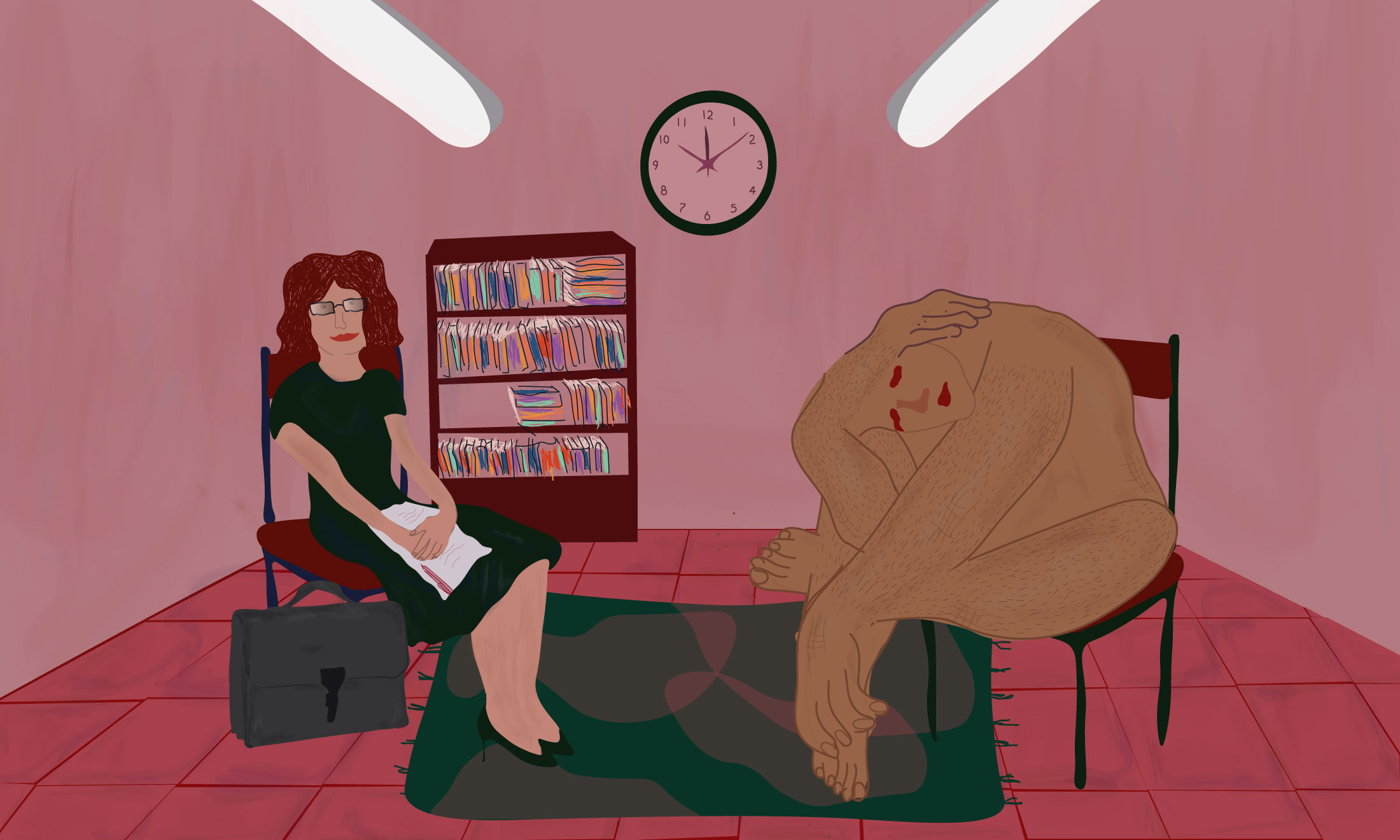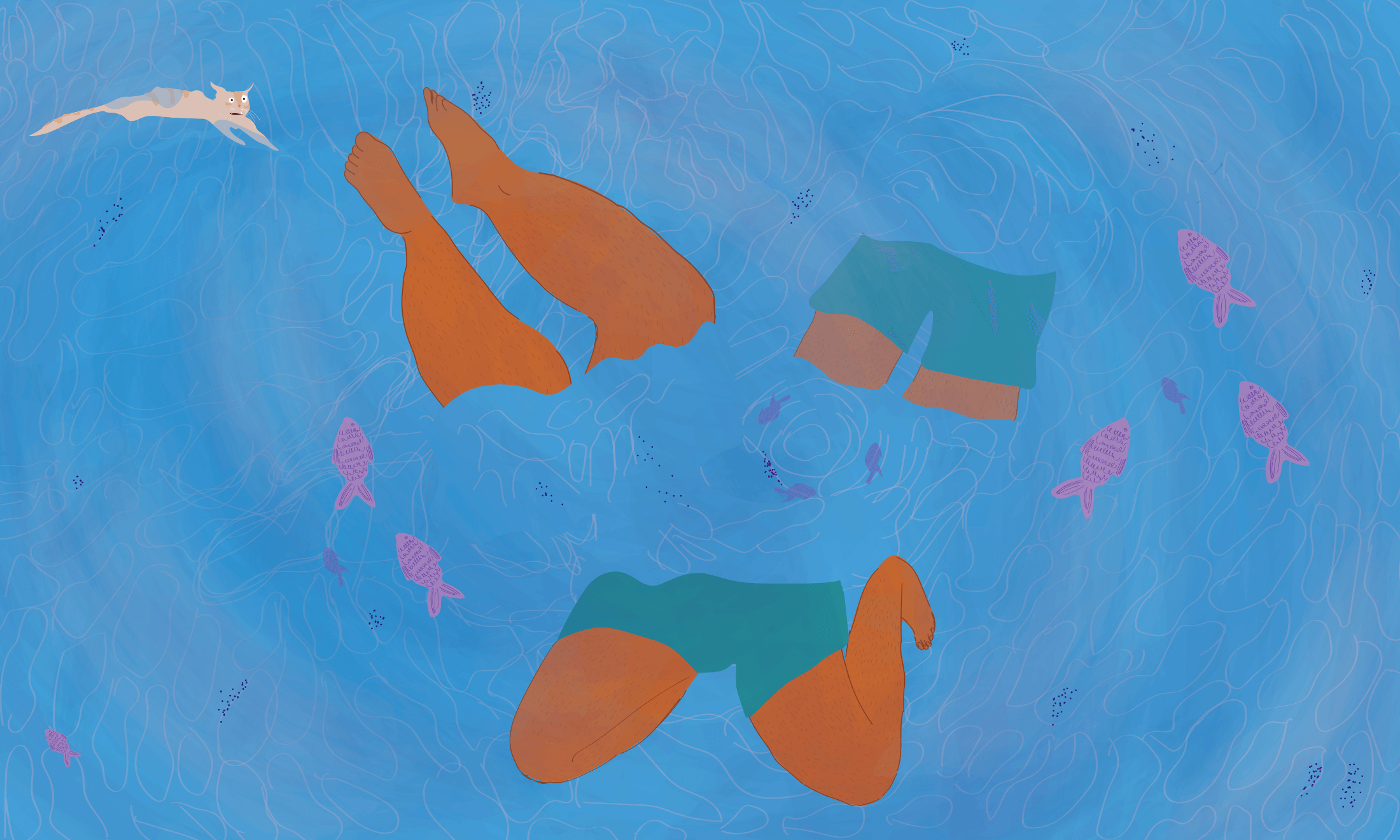
Hayfaa Chalabi
Against the binary: Trans people of colour shouldn’t have to neglect parts of their identity in therapy
Our gender columnist, Yas, reflects on how it can be hard to bring all pieces of your identity to talking therapy as a trans person of colour.
Yas Necati and Editors
29 Nov 2021
Welcome back to gal-dem’s monthly gender column ‘Against the binary’, bringing you Yas Necati’s latest reflections on finding gentleness, home and joy as a trans person.
“I know you requested to see a therapist of colour, but unfortunately we don’t have any people of colour working at our service at the moment.”
It was late 2018, I was ill and was making my way around LGBTQ+ charities that offered free therapy. I was disappointed but unsurprised that there were no therapists of colour working for this service. After my experiences with (mostly white) therapists, I didn’t know if I could face another person who would potentially make weird comments about Islam or the Middle East. My request for a queer therapist of colour was an attempt to avoid this.
I’ve been in and out of therapy for almost ten years now, since I was 16 years old. It has always been one of the most complicated relationships of my life. Sometimes my therapy experience has been rich and brave and taught me things about myself that have made me want to change. Sometimes it has been treacherous.
My therapy journey didn’t have a great start. I was in CAMHS as a young person – the NHS Child and Adolescent Mental Health Service, notoriously known to young people and professionals as being not particularly effective. I’m sure there are some good people within it, but the psychiatrist I had made me uncomfortable. She was a posh white woman who dressed like a lawyer. Her tone was patronising from the get-go; I felt like she didn’t really listen to what I said and – worse – didn’t care to. I began getting auditory hallucinations when I was 17. I was scared, and I told her what was happening. She replied flippantly that it could be anything, maybe it was just earwax.
“I can’t count the number of times that I’ve been misgendered in therapy, or literally had to explain to a therapist what non-binary means”
It got worse. From therapists blaming my teenage internalised homophobia on my family being Muslim, to others trying to discourage me from going to Cyprus because of “fears for my safety”, I’ve had my fair share of upsetting experiences. I can’t count the number of times that I’ve been misgendered in therapy, or literally had to explain to a therapist what non-binary means. It has rarely gone well – mostly they just ask why I’m “uncomfortable with my womanhood”.
I know it isn’t just me. Chatting to loved ones about their therapy experiences, I’ve heard so many stories of how societal oppression makes itself known in therapy sessions. Yet it feels impossible to face it when it shows up – whether blatantly or inadvertently – in a space you are supposed to feel “safe”. How are we supposed to navigate oppression when it is everywhere, even in the spaces we go to unpack it? Even in the spaces we go to when, and because, we have been most hurt by it?
After years of this, I was done with straight cis white people therapising me through their lens. When I was 22 (it took me long enough!) I approached an LGBTQ+ specialist therapy service for support. They told me they had no people of colour on staff. In my first session with my white therapist, I was talking about some family drama. Her reply, completely unprompted, was; “I can see a real battle of East meets West here.”
“How are we supposed to navigate oppression when it is everywhere, even in the spaces we go to unpack it?”
I was ready to opt out of therapy at that point, not because I didn’t believe in it, but because even when approaching an LGBTQ+ service – a space that was supposed to be a collective “ours”, it was clearly a white person’s definition of “ours”. I wasn’t sure where to go next, but not quite ready to give up, I tried another LGBTQ+ charity. And another. And another.
Finally, in 2019, I was assigned a therapist who was an LGBTQ+ person of colour. I showed up to our sessions full of hope and ready to go places I had felt unable to with white and/or straight and/or cis people. After years of searching, I was sure that for the first time I wouldn’t have to choose which of my identities got left out of the therapy space – I could bring my whole self. But when I got into her office, she was falling asleep in our sessions.I knew the service would be busy and therapists overworked and exhausted, but was it too much to demand a space that was about my needs? Why couldn’t I demand this for myself?
“When my mental health is at its worst, I’m underwater, and I see the land through that wavy film”
After the sleepy therapist also misgendered me twice (at an LGBTQ+ specialist service!), I jumped ship. At the end of 2020, I finally saw a trans therapist of colour for the first time, through another LGBTQ+ charity. They asked me what I did for self-care and I listed off things like drinking lots of water and making sure I ate. They were gentle with me – “No, those are the bare minimum things you do to preserve yourself. What do you do to be yourself?” I’m still asking myself that a year later.
When my mental health is bad, I feel like I am treading water. Sometimes I can see the shore, sometimes not. My head is above the waves and I’m alive but it’s exhausting, and any second I could go under. When my mental health is at its worst, I’m underwater, and I see the land through that wavy film. The best therapists I’ve seen haven’t necessarily moved me from one place to another, but they’ve swum with me for a bit. They’ve given me snorkels, maps, armbands.
I’ve recently started a new round of therapy and I’m hoping for more than just a space; I’m hoping I can be seen in my queerness, transness and Cypriotness. I’m hoping for challenges, new questions, new answers, and a really great doughnut-shaped rubber dingy. I’m still faithful because I know the right therapist, despite being hard to find, will come out to swim with me.








